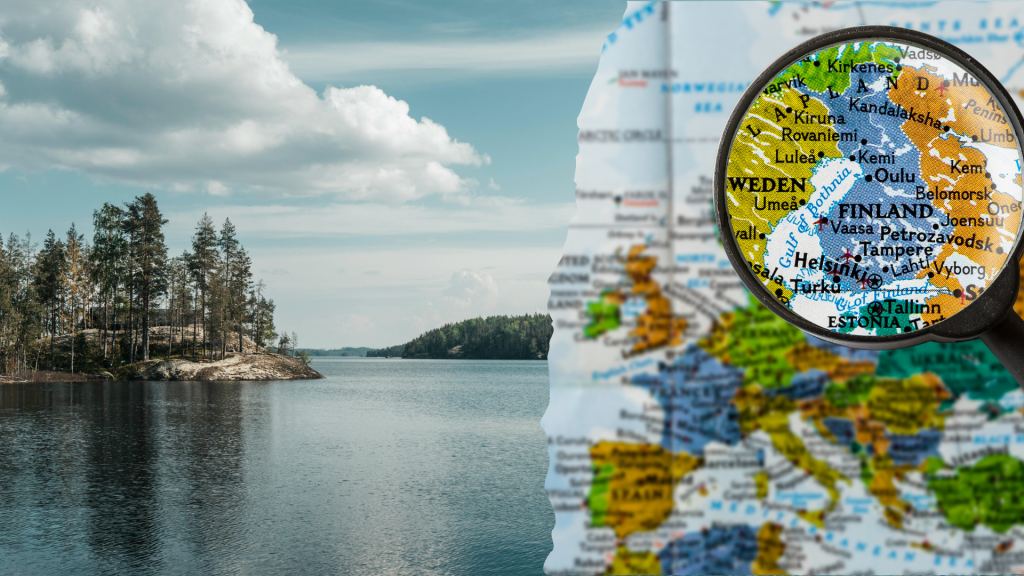Europe is tightening its focus on sustainability, certification, and regulatory compliance. For Indonesian companies, Finland is not only an attractive market in its own right but also a reliable gateway to the wider EU. With recent trade agreements, growing consumer demand for halal-certified and eco-friendly products, and investments in green technologies, now is a strong moment to plan expansion into Finland and Europe.
Why Finland & Europe Are Attractive
- Stable, transparent business environment: Finland, as an EU member, offers strong legal protection, predictable rules, and high standards in environment, labor, and product safety. This makes it easier for companies to build long-term credibility and brand trust.
- Access to large markets: Entering Finland opens doors into the broader EU single market — roughly 450 million consumers— with preferential trade terms and harmonised standards for many goods and services.
- Halal & high quality demand: European consumers are increasingly concerned about both product quality and ethical/certification credentials. Halal certification, sustainable sourcing, clean production, and traceability are becoming differentiators—not just obligations.
- Emerging trade benefits: Finland and Europe are part of the upcoming EU-Indonesia trade agreement (CEPA) that aims to reduce tariffs and non-tariff barriers. For early movers, being ready for compliance now can give a competitive edge.
Recent Data & Market Indicators
- Finland’s imports from Indonesia rose in recent years. For example, in 2024, Indonesia exported USD 212 million worth of goods to Finland. While not huge in absolute terms, the trend shows steady growth and room to expand.
- Finland’s imports from Indonesia for 2024 were about USD 171.35 million according to United Nations COMTRADE data. tradingeconomics.com
- Finnish companies frequently report encountering trade barriers abroad. A study from ETLA indicates 41% of Finnish companies with international operations reported barriers between 2019–2022, including technical, regulatory, or documentation related challenges.
Key Challenges to Overcome
- Regulatory & compliance burden: EU markets have strict rules for imports—product safety, environmental rules, labelling, traceability, and in many cases sustainability or deforestation concerns. Getting certification and documentation in order is often time-consuming and costly.
- Standards & sustainability expectations: Buyers in Finland/Europe expect sustainable production, ethical supply chains, and reduced environmental impact. Practices acceptable in one country may need adaptation to meet EU or Finnish standards.
- Cultural differences & business norms: Branding, packaging, consumer expectations, communication styles, and negotiation practices differ. Understanding local market preferences, regulatory expectations and business culture is essential.
- Logistics, costs, and tariffs: Even with favorable agreements, shipping, customs, taxes, and possible non-tariff barriers add layers of cost and risk.
Emerging Trends & Opportunities
- CEPA agreement implementation: As the EU-Indonesia trade agreement progresses, updated rules on tariffs and non-tariff barriers will help reduce some of the hurdles. Businesses preparing now for compliance will benefit once agreements are fully in place.
- Sustainability / ESG as value drivers: Companies that can show strong environmental, social, and governance credentials (e.g., sustainable sourcing, ethical labour, reduced carbon footprint) are increasingly preferred by buyers and platforms in Europe.
- Halal certification with dual compliance: Firms that obtain halal certification recognized in both Indonesia and for export to EU markets are better positioned. Certification plus high quality or sustainable production attracts niche segments.
- Digital presence & e-commerce: European consumers rely heavily on online platforms for discovery. A strong online presence, clean packaging, clear product info (including certifications), and efficient shipping options are increasingly critical.
How Indonesian Companies Can Prepare
- Map regulatory requirements early: Research EU product standards, Finnish import rules, packaging, labelling, environmental compliance, and halal requirements.
- Certifications & documentation: Halal, organic, sustainability certifications are not just compliance tools—they can be differentiators. Investing in them early may open doors.
- Partner with local firms in Finland or EU: Partnerships can help with local logistics, distribution, marketing, and navigating local regulations.
- Focus on quality and sustainability: Highlighting ethical sourcing, minimal environmental impact, and traceability makes a strong case in European markets.
- Monitor trade agreement developments: Being aware of upcoming changes in CEPA and related trade/tariff rules helps in planning product adaptation and pricing.
For Indonesian companies, Europe—via Finland—offers a stable market, demanding but clear standards, and increasing demand for sustainable, high-quality, halal-certified products. While the challenges are real—compliance, logistics, standards—they are navigable.
At Green Change Consulting, drawing from decades of international and policy experience, I help businesses make this transition with clarity and confidence. From documentation support and market strategy to compliance readiness and leveraging your unique advantages, we can assist in turning potential into sustainable success.

